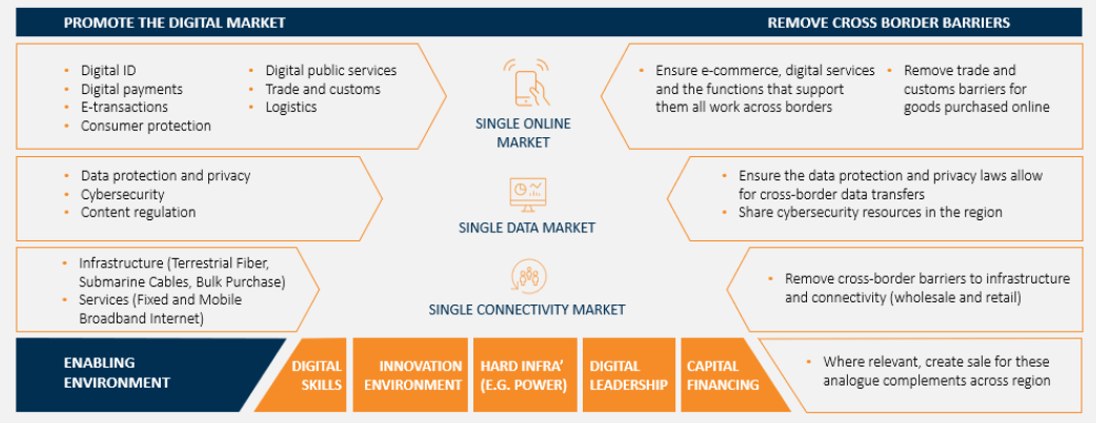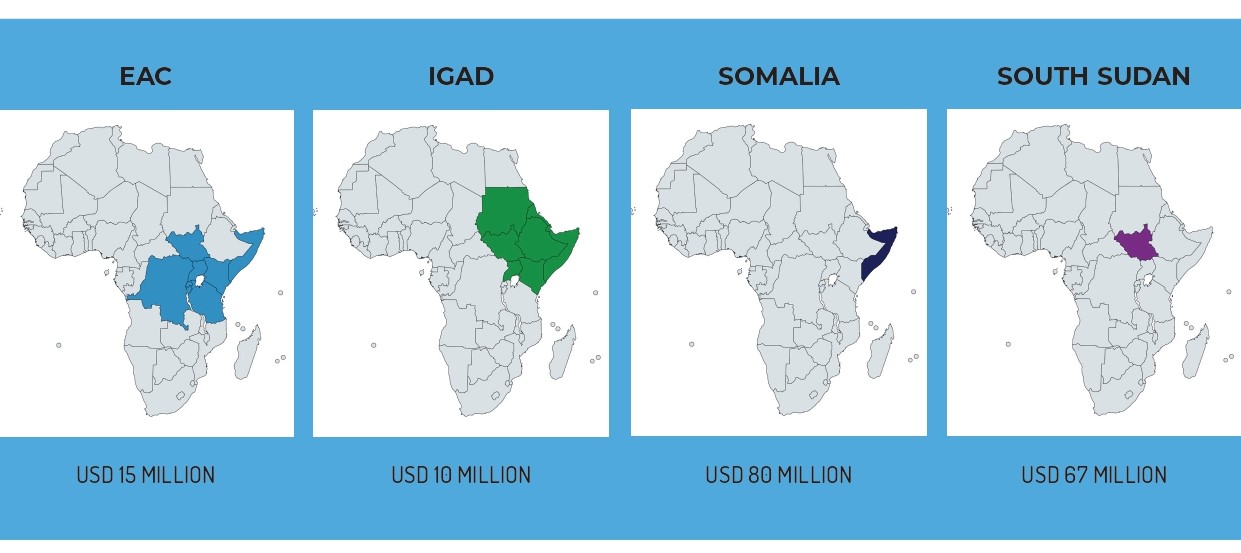Posted in EARDIP
The Eastern Africa Regional Digital Integration Project (EARDIP) is a flagship initiative designed to drive digital transformation, inclusion, and integration across the Eastern Africa region. Launched through a collaborative effort between the World Bank, the East African Community (EAC), the Intergovernmental Authority on Development (IGAD), and participating countries, EARDIP seeks to leverage the power of digital technologies to foster regional cooperation, inclusive growth, and economic resilience.
EARDIP builds on a strong foundation of regional integration within the East African Community, which is progressing through four key pillars: a Customs Union, a Common Market, a Monetary Union, and ultimately, a Political Federation. The Customs Union became operational in 2005, followed by the launch of the Common Market in 2010. A common currency is planned for introduction by 2031, setting the stage for deeper political and economic union.
Within this broader regional integration framework, digital transformation has become a central priority. The EAC has already taken significant steps toward a ‘Single Digital Market’ (SDM), including the EAC One Network Area (ONA) initiative, which eliminated mobile roaming charges and capped cross-border voice tariffs within Partner States, and the adoption of a Regional e-Commerce Strategy in 2022. These efforts aim to strengthen digital infrastructure, enhance cross-border services, and create a unified environment for e-commerce and digital trade.

However, the full implementation and expansion of these digital frameworks requires targeted investment, capacity building, and policy harmonisation - needs that EARDIP directly addresses.
EARDIP is being implemented as a Series of Projects (SOPs). Phase I includes three countries from the Horn of Africa - Somalia and South Sudan, as well as two (2) Regional Economic Communities: The East African Community (EAC) and the Intergovernmental Authority on Development (IGAD). These countries and RECs were selected based on both development needs and regional mandates, allowing for broad geographic coverage and strong institutional coordination.
This phase prioritizes regional connectivity, especially addressing significant infrastructure gaps in participating countries. It also lays the groundwork for two additional pillars that will be emphasized in future phases: data governance and digital platforms and the online digital economy.
Crucially, EARDIP aligns with the EAC Vision 2025 and the African Union’s Digital Transformation Strategy (2020–2030) and supports the vision for an integrated digital economy. By promoting harmonised regulations, secure digital platforms, and cross-border infrastructure, the project helps remove regulatory and investment barriers and supports the creation of a dynamic and unified digital market capable of generating economies of scale, attracting investment, and accelerating innovation.
Through a regional lens, EARDIP envisions an inclusive and resilient digital future for Eastern Africa - one that empowers governments, businesses, and citizens through connectivity, shared services, and secure access to the digital economy.
Posted in EARDIP
In an effort to create an enabling environment for secure and efficient e-commerce system that will ultimately advance digital market integration in the region, the Online Market Development and Integration component has set out the following objectives:
-
Harmonisation of legal and regulatory frameworks
To harmonise legal and regulatory frameworks governing digital trade and e-commerce across the region, fostering a cohesive approach to digital transactions and ensuring consistency in policies.
Expected Outcome
Development and adoption of regionwide legal and governance frameworks for e-commerce, trade, and payment systems, ensuring consistency and coordination in regional digital trade policies.
-
Establishing digital trade-enabling frameworks
To establish a comprehensive framework that enables digital trade, addressing key issues such as mutual recognition of e-signatures, electronic documentation, consumer protection, and online market regulations.
Expected Outcome
Development of a robust and cohesive framework that facilitates digital trade across the region.
-
Enhancing Payment Systems interoperability
To enhance the interoperability of digital payment systems across the region, enabling seamless cross-border transactions for goods, services, and financial inclusion.
Expected Outcome
Improved interoperability of electronic payments, enabling seamless cross-border transactions for goods and services and financial inclusion.
-
Building regional capacity on online trade
To build capacity among policymakers, regulators, and stakeholders in digital trade, governance, and the effective implementation of regional e-commerce strategies.
Expected Outcome
Expansion of digital skills in the region, particularly targeted digital skills training programs, enabling broader participation in the digital economy.


